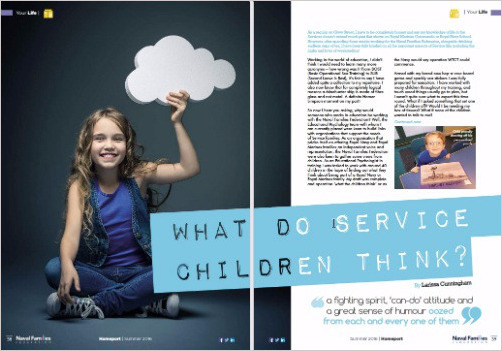Assignment type: Thesis
Author: Camilla Jerrard
Submitted: June 2017
Abstract
The aetiology of SA is complex; its onset is impacted on by several factors and their interaction including genetic (e.g., temperament), environmental risk (e.g., maternal overprotection) and cognitive risk. This review examined research that explores the impact of acute and chronic environmental risk and resilience factors (e.g., parenting style, SES, parental separation experiences, paternal absence and traumatic experiences) on the aetiology of SA symptoms and SAD, specifically for school-aged children and adolescents (aged 2-18). The review used three electronic databases for the literature search, a combined search in Psychinfo and Medline via EBSCO and ERIC. Following a systematic method, 18 papers were selected for analysis. Eight risk factors in school-aged children and adolescents were identified. These linked to themes of parenting styles, parent separation, traumatic experiences, socioeconomic status and early risk. Three potential resilience factors were also identified through the process of this review: parent-offspring relationship, access to therapeutic support and planned separation experiences. Findings are discussed in relation to theory and research to inform intervention for SA and SAD in educational settings and Educational Psychologist’s (EPs) practice. Limitations are explored and future research is discussed.Cognitive models of anxiety propose a cognitive-behavioural representation of information processing biases, demonstrating the inter-relationship between the thoughts and actions of an individual. Theoretical models highlight family and parenting factors that contribute to intergenerational transmission of anxiety (parent to offspring) and cognitive processes. Little research has focused on the emergence of specific anxiety disorders in high-risk groups and investigated these interrelationships. Military families have been described as being at greater risk to threat exposure due to unique family and environmental factors (e.g., transitions and deployments). The present research explored the association between parent and offspring anxiety, interpretation biases and parenting variables in a military family population. Twenty-nine mother/child dyads (8-11 years) completed a word interpretation bias task of threatening (general and separation themes) and neutral words and reported their negative affects via questionnaires. Parenting was measured via the Five-Minute Speech Sample, which assesses expressed emotion (e.g., warmth and relationship). Positive and significant correlations between parent- and children’s- self-reported negative affects were found (ps<.50). Child cognitive interpretation bias was associated with children’s reports of anxiety. No associations for parent cognitive biases were found. Parent reports of child separation anxiety were positively and significantly correlated with number of deployments (ps<.50). Parenting variables were not associated with increased reports of negative affect in mothers or offspring. Mediation models explored the association with mothers’ own anxiety and the development of biases in offspring via increases in the child’s reports of their own anxiety. Two indirect effects approached significance. Findings are discussed in relation to the development of anxiety and explore the mechanisms involved in the transmission of anxiety from parent to offspring.
Download thesis (PDF) via ePrints Soton

